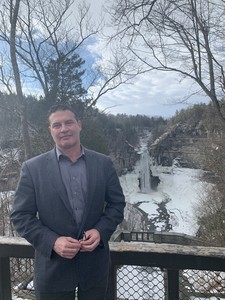主题:Estimating Local Economic Impacts and Multipliers from Economic Shocks
主讲人:Mark D. Partridge(Ohio State University)
主持人:武文杰(88858cc永利官网)
时间:2022年6月23日(周四)上午9:00-10:30
会议工具:zoom(ID:811 6529 2775 密码:345704)或通过以下链接入会
https://us06web.zoom.us/j/81165292775?pwd=SkF3OWdEREpDcFAycXZCdGZubVRhZz09
摘要
One of the most common tasks asked of applied economists is to assess the economic impacts of a local economic shock on the local region—e.g., a new manufacturing plant, a large development project, closure of a government facility, a large new government program. The main economic challenge is the inherent endogeneity from labor demand and supply interacting—e.g., in-migration spurs new employment growth with the reverse holding as well. A new industry locating in an area, (a) directly increases local employment (and income) directly from the new industry’s hires, (b) indirectly increased impacts through the expansion of the industry’s local input-output supply chain; and (c) induced effects through the spending of the newly hired workers (in parts (a) and (b) above) on local goods and services such as groceries. Summing the direct, indirect, and induced effects, one then derives the total local economic impact. This seminar will discuss how to estimate these multiplier effects for the rest of the local economy. A brief discussion of their development in the 1930s and what they are used for. The presentation ends with one or two empirical examples depending on time.
讲座人简介

Mark Partridge is Swank Chair of Rural-Urban Policy at Ohio State University and affiliated with GSSI in Italy and Jinan University in China. He served twelve years as Co-Editor of the Journal of Regional Science and is on another ten editorial boards. He has published approximately 200 academic journal papers and 70 other book chapters, briefs, and reports, including in some of the world’s leading economics journals. He co-authored the book The Geography of American Poverty: Is there a Role for Place-Based Policy? Dr. Partridge frequently gives presentations and addresses to academic and practitioner groups around the world. He has received research funding from many sources including World Bank, European Commission, U.S. National Science Foundation, and Canadian SSHRC. His research includes investigating poverty, inequality, and regional growth, and he is a leading rural policy expert. He is a Fellow and Past-President of the Regional Science Association International and has received the prestigious NARSC Isard and Boyce Awards.


